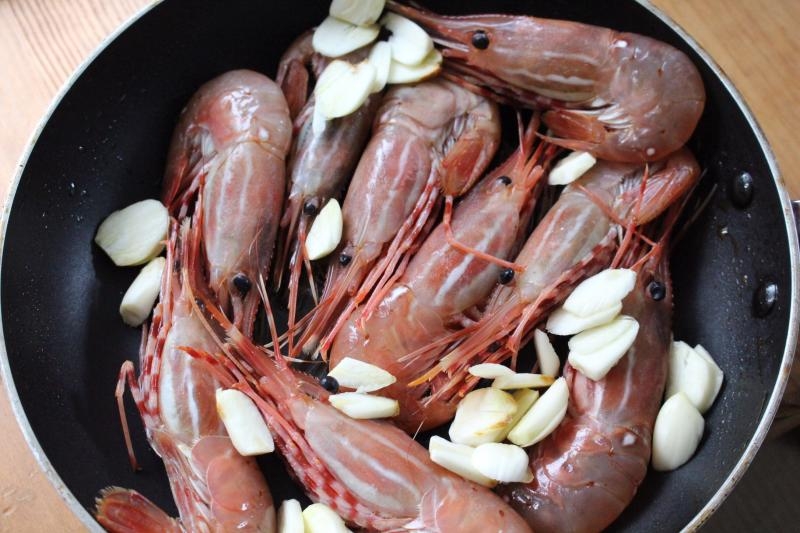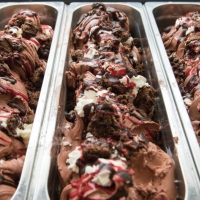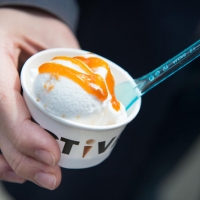Saturday evening
Primary tabs

Saturday evening
A saturday evening in Germany.... To be continued
Some senators such as Marco Rubio of Florida aren’t showing up for the Republican convention in Cleveland. Neither is the Bush family nor many other party elders, who recoil at the rhetoric and policies of likely GOP nominee Donald Trump.
But for many lobbyists and political strategists in both parties — plus the leaders of think tanks, industry groups and Fortune 500 companies — party conventions are still must-go events that are simply part of the job. Many heading to the GOP event on July 18, as well as the Democratic convention in Philadelphia a week later, say it’s just good business to show up. “Somebody is going to end up in charge, and our job is to help our clients figure out who they are,” said David Schnittger, the senior policy adviser at lobbying giant Squire Patton Boggs. “Regardless of how you feel about the candidates involved in the process, you have to be a part of it.” Jason Grumet, founder and president of the Bipartisan Policy Center, a think tank designed to get the two parties talking to each other, said the critical mass of political types gathered in both cities at the time of the party meetings is irresistible.
At 3pm: Aberdeen 16°C, Plymouth 16°C, Newcastle 19°C, Belfast 21°C, Manchester 21°C, Birmingham 21°C, Cardiff 23°C, London 23°C. Ben R
— BBC Weather (@bbcweather) July 9, 2016
“We see real value in going to the national conventions — some of the most tribal moments in American democracy — to be part of those discussions,” he said. Grumet’s group is hosting a series of policy-focused panel discussions in Cleveland and Philadelphia that will focus on economic growth; infrastructure spending and energy policy; tax policy; and the future of health care. The evidence is only anecdotal, but the policy center is seeing more interest for its events on the sidelines of the Democratic convention, which begins July 25, than for events in Cleveland. As of this week, the group had 300 people confirmed to attend events in Cleveland, compared with 440 sign-ups for Philadelphia. “I think that signifies something. That wasn’t the case in past conventions,” Grumet said. [Who will show up? Who will pay? The many unknowns of the GOP convention] Dozens of Republican leaders are staying away from this year’s convention because of Trump, including several lawmakers in tight reelection races.
Some lawyers advising corporations and big associations on campaign finance compliance rules also say they have noticed a paucity of convention-related inquiries so far. Brett G. Kappel, a campaign finance attorney with Akerman LLP, said such calls usually start four months before a convention as companies and associations begin making plans. “This year, I got none — zero,” he said. “I would be very surprised if other practitioners aren’t seeing the same thing.” Longtime delegates also say they are seeing less evidence of after-hours activity. Kendal Unruh, leader of Free the Delegates — a group hoping to derail Trump on the convention floor — who has attended conventions since the 1980s, says that she and several colleagues in other states have not received any invitations to concerts, cocktail parties or other events. “Normally by now, we’d have a stack of invites six inches high,” she said. “This year? Zero.” Anyone seeking to avoid partisan strife can still choose from plenty of policy forums, day trips — to the Rock and Roll Hall of Fame, for example — luncheons and cocktail parties. There’s also talk of a bean-bag toss between Republican delegates from New Jersey and Massachusetts. Camp Kaufman, a GOP lobbyist and managing partner of state government affairs at Cornerstone Government Affairs, said that despite the controversy surrounding Trump’s candidacy, “the convention itself, at least in my experience, seems to be running pretty much the same way it has in the past.” Kaufman’s firm is for the first time spending money to hold events at a convention, including a series of receptions co-sponsored by the Republican Governors Association for Texas Gov. Greg Abbott and Mississippi Gov. Phil Bryant. Other events are expected to draw luminaries such as former House speaker John A. Boehner (R-Ohio), who helped draw the convention to his home state. He and former Senate majority leader Trent Lott (R-Miss.) are headlining a “Sky High View of Cleveland” party at the city’s Key Tower the night before the convention formally begins, sponsored by Schnittger’s firm. [A growing concern in Cleveland: Chaos off the GOP convention floor] Schnittger — a former Boehner aide and who still serves as his spokesman — said the former speaker will be in Cleveland despite no official role because “it’s an important event for his home state of Ohio.” Democrats will be trying to draw attention away from Republicans in Cleveland. American Bridge, a group that supports presumptive Democratic nominee Hillary Clinton, is renting out a loft near the site of the GOP convention for a pop-up “Trump Museum” complete with Trump Vodka, Trump-designed neckties and other products the businessman has sold through the years. In Philadelphia, Clinton may still be struggling to win over delegates supporting Sen. Bernie Sanders of Vermont when Democrats launch their convention. The city will be holding a“Philly Feast” to showcase top food trucks. Leaders in both convention host cities hope that the nonpartisan events spur big spending and renewed interest from tourists who catch glimpses of the skylines, landmarks and newly renovated parks during news coverage. Cleveland organizers anticipate as much as $250 million in spending; Philadelphia officials estimate $250 million to $300 million in revenue. [Democrats release draft of platform, with shifts to left on death penalty, abortion, taxes] Both political parties are also hoping to raise money with so many lobbyists and business executives in town. The National Republican Congressional Committee sent invites for a “Private Top Investors Brunch” scheduled for July 19 at the Cleveland Botanical Garden, according to an invitation. In Philadelphia, the Democratic Senatorial Campaign Committee has scheduled at least 13 events across the city, according to an invitation. A kickoff reception will be headlined by Sen. Robert P. Casey Jr. (D-Pa.) at The Franklin Institute on July 25, while a tribute to retiring Senate Minority Leader Harry M. Reid (D-Nev.) is scheduled for July 28. Eager to avoid accusations of partisanship, leaders of trade groups, lobbying shops, advocacy organizations and corporations emphasized that they are hosting events in both cities to reach both parties. The Ford Motor Co. plans to sponsor events with delegations from Michigan, Missouri and Ohio — states that are home to large manufacturing plants. A spokesman for JPMorgan Chase said that instead of directly sponsoring the conventions, the company plans to focus on its work with summer youth employment programs in the host cities. The Creative Coalition, a nonpartisan arts advocacy group, is holding benefit galas headlined by Martina McBride in Cleveland and Fergie in Philadelphia. In Cleveland, the U.S. Hispanic Chamber of Commerce is scheduled to hold a discussion with Ohio Gov. John Kasich (R) about Hispanic small businesses and is planning a similar panel at Comcast headquarters in Philadelphia with Democrats. Voto Latino, a group registering younger Hispanics to vote, will hold a “Latino Leaders Luncheon” in both cities and a “Purple Carpet Bash” at the Theater of the Living Arts in Philadelphia on July 27. The Distilled Spirits Council, whose parties are a quadrennial favorite at both conventions, plans to throw its signature kickoff parties. In Cleveland, the council is teaming with public affairs firm Locust Street Group to throw a post-Prohibition themed cocktail party — inspired by 1936, the last time Cleveland hosted the RNC — at the Cuyahoga County Courthouse. The Philadelphia version will feature country singer Jason Isbell and Joe Walsh of the Eagles at World Cafe Live. Longtime convention-goers said they will continue to be discerning about which events to attend. “It’s really about what the entertainment is going to be because you’re going to be awash in free food and drink, which isn’t the appeal,” said Erick Mullen, a former aide to House Minority Whip Steny Hoyer (D-Md.) who is now a lobbyist and consultant at Mercury Public Affairs. “The appeal is logistics — to where can we walk? And entertainment. Otherwise, how much cheese and crackers and bottled beer can you look at?”
- Log in to post comments
- 367 reads


